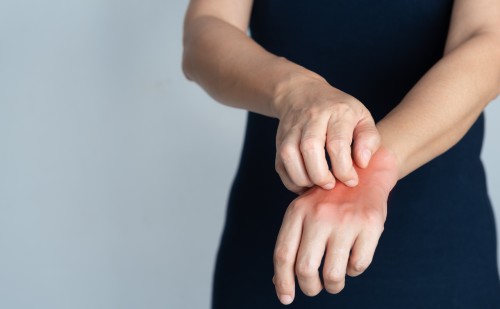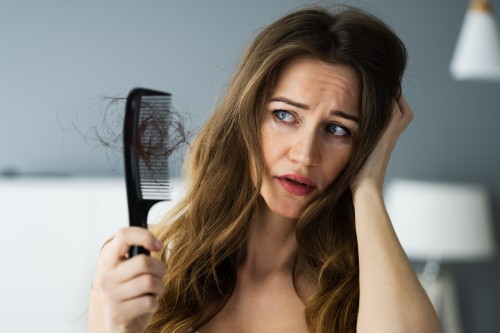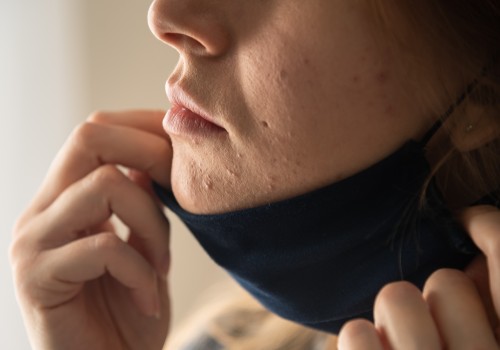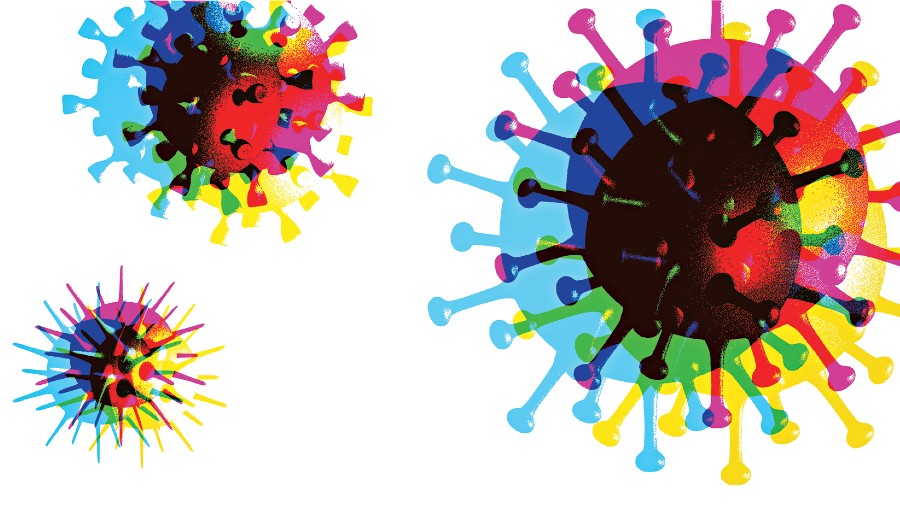There is no doubt that Covid-19 has changed our lives forever. As the pandemic progresses, we are growing increasingly aware that the virus affects multiple organs and not just the lungs. Ever since the pandemic began, dermatologists across the world have been called upon to see certain skin issues and now a consensus seems to have been reached about the patterns in which Covid-19 affects skin and hair, directly and indirectly.
To simplify the matter, skin and hair may be affected by Covid-19 in the following ways:
• The virus itself can cause certain skin-related issues which may manifest before, during or after the other characteristic symptoms appear.
• Skin and hair issues cropping up during the recovery phase following Covid infections.
• Problems due to lifestyle changes we have had to make like using masks and sanitisers, as well as washing hands frequently.
In this particular article, I would like to touch upon all these issues and how to deal with them.
Skin issues due to the virus

Dermatologists have recognised the following patterns of direct skin involvement due to the covid virus:
• Widespread measles-like rashes consisting of red flat patches or small bumps which may mimic a drug rash that may appear along with other symptoms of Covid-19.
• Hives or a urticaria kind of rash, which may be very itchy.
• A chicken pox kind of a rash with water-filled bumps called vesicles.
• Covid toes or a chilblain-like rash in which the feet and hands may become purplish and blisters may appear on them. These appear late in the disease.
• A fishing-net-like pattern on the skin.
What’s important to know is that most of these skin issues are not exclusive to Covid-19 itself. So, if someone develops these above-mentioned skin issues, they must not panic. Get an RT-PCR done and, in the meanwhile, monitor for the development of other symptoms, check oxygen saturation and wait for the results. Most of these rashes easily subside on their own or with simple medication.
Special mention must be made of the multisystem inflammatory syndrome, or MIS-C, which develops in children, although rarely, and in which there may be widespread rashes with fever and pink eye, lips and mouth. There can also be severe stomachache, diarrhoea and vomiting and these may be present even for a few months after the patient has recovered from the Covid infection. This should be taken very seriously and no time should be wasted in taking these children to a hospital.
Please remember that just because you have a rash it doesn’t mean that you have Covid. A rash can be a symptom of many, many diseases. Similarly, with growing challenges like the black fungus, there can be a lot of misinformation as well, which can often create mass hysteria and panic. At this critical time, one of the ways we can be of help is by staying properly informed and seeking the right information from the right sources.
Skin and hair issues in the recovery phase

Recovery post-Covid is fraught with the challenges of fighting exhaustion and bodyache. There can also be the following skin and hair issues:
• Hair fall: When you get infected with Covid-19, your body undergoes a lot of stress. During this stress, the body reserves all its energy for vital organs. Unfortunately, hair is not vital for our existence (I know! But that’s how it is) and, hence, stress-shedding of hair begins, which is medically known as ‘telogen effluvium’, which means that hairs in the telogen phase are lost. This shedding occurs in clumps, which is more noticeable during shampooing, and often elicits a panic state in a person. This shedding process can last six to nine months and can start two to three months after the Covid infection. The good news, however, is that this is reversible and, most often, hair recovery happens over time. During this period, avoid mechanical damage to hair — don’t oil vigorously and take proper supplements and apply peptides to accelerate hair growth.
• Skin dryness: Another common complaint people have during the recovery phase is that their skin becomes excessively dry. To counter that, use gentle cleansers and body wash. Apply thick ceramide-containing moisturisers and seal it with coconut oil. Wear loose cotton clothing, stay at ambient temperature and avoid harsh soaps and cleansers.
• Skin dullness and darkening: Again, this is mostly a response to the stress your body has undergone. However, skin dullness can impact a person psychologically. So, to get your glowing skin back, act on all verticals. Include lots antioxidants, berries and green vegetables in your diet and take vitamin and mineral supplements. Use sunscreen even when you are indoors. Do talk to your dermatologist and get a customised skincare routine to fight any excessive pigmentation and to improve skin texture. Don’t try OTC (over the counter) creams or DIY recipes because they can actually worsen your skin condition.
Skin problems due to lifestyle changes

Covid-19 has majorly affected how we live our lives. Some of these changes are now an integral part of our life, like wearing masks, using hand sanitisers and washing hands often. There have been extended periods of lockdowns during which people have had to do things like waxing at home. All of these changes can impact our skin in the following ways:
• Mask acne: Due to prolonged wearing of masks and humidity, people can develop pimples or acne in the covered part of the face. Take these precautions to prevent mask acne.
• Wear snug but comfortable masks. If you are wearing a fabric mask, ensure it has two layers of fabric, the inner layer should be cotton. Avoid synthetic masks. Wash your mask every day.
• Avoid make-up as much as you can.
• Wash your face with a cleanser twice a day.
• Put on a light moisturiser before putting on the mask.
• Avoid trying new skincare products.
• If you develop acne, you might need prescription products like retinoids and Benzoyl peroxide. Don’t pop your acne. Rather, consult a dermatologist.
• Hand eczema/dryness: Regular hand-washing and frequent use of sanitisers can strip the layer of lipids from the skin of the hands and leave them vulnerable to chemical and environmental assault. This can lead to excessive skin dryness, skin peeling and itching of the hands. To prevent this, use petrolatum or mineral oil-based moisturisers three to four times a day and every time you wash your hands. Use sanitisers which do not have a lot of fragrance. If you have severe cuts and pain, contact your doctor because you might need special care.
• Skin burns due to home waxing: Due to extensive lockdowns, a lot of women have to resort to waxing at home using strips that are ordered online. I have seen a lot of cases of burns due to these strips over the last one-and-a-half years. In case of a burn, use cold water and immediately contact your doctor to avoid scars and other complications of such burns.
PS: A lot of dermatologists are doing online consultations. Please refrain from self-medicating because that can cause more problems. See a doctor when in doubt.
Dr Ishad Aggarwal, MD, is a consultant dermatologist. He is also a skin, laser and aesthetic medicine expert and a trainer for Botox and fillers. Find him on Instagram @skindoc_ishad











